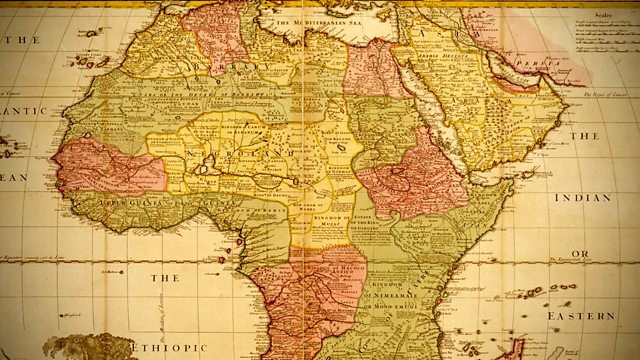The Berlin Conference
Melvyn Bragg and his guests discuss the Berlin Conference, the international summit which formalised European colonial activity in Africa.
Melvyn Bragg and his guests discuss the Berlin Conference of 1884. In the 1880s, as colonial powers attempted to increase their spheres of influence in Africa, tensions began to grow between European nations including Britain, Belgium and France. In 1884 the German Chancellor, Otto von Bismarck, brought together many of Europe's leading statesmen to discuss trade and colonial activities in Africa. Although the original purpose of the summit was to settle the question of territorial rights in West Africa, negotiations eventually dealt with the entire continent. The conference was part of the process known as the Scramble for Africa, and the decisions reached at it had effects which have lasted to the present day. The conference is commonly seen as one of the most significant events of the so-called Scramble for Africa; in the following decades, European nations laid claim to most of the continent.
With:
Richard Drayton
Rhodes Professor of Imperial History at King's College London
Richard Rathbone
Emeritus Professor of African History at SOAS, University of London
Joanna Lewis
Assistant Professor of Imperial History at the LSE, University of London.
Producer: Thomas Morris.
Last on
More episodes
Previous
LINKS AND FURTHER READING
��
��
��
��
��
READING LIST:
��
Antony Anghie, Imperialism, Sovereignty and the Making of International Law (Cambridge University Press, 2007)
��
James Belich, Replenishing the Earth: The Settler Revolution and the Rise of the Anglo-World (Oxford University Press, 2009)
��
Sybil Crowe, The Berlin West African Conference, 1884-1885 (Royal Empire Society, 1942)
��
Stig Förster, Wolfgang J. Mommsen and Ronald Robinson (eds.), Bismarck, Europe, and Africa: The Berlin Africa Conference 1884–1885 and the Onset of Partition (OUP, 1989)
��
Adam Hochschild, King Leopold’s Ghost: A Story of Greed, Terror and Heroism (Pan, 2012)
��
Tim Jeal, Stanley: The Impossible Life of Africa’s Greatest Explorer (Faber & Faber, 2008)
��
David Livingstone (Horace Waller ed.), The Last Journals of David Livingstone (Murray, 1874)
��
Roland Oliver and G. N. Sanderson (eds.), The Cambridge History of Africa (volume 6), especially John Lonsdale’s chapter ‘The European scramble and conquest in African history’ (Cambridge University Press, 1985)
��
Thomas Pakenham, The Scramble for Africa (Abacus, 1992)
��
Ronald Robinson and John Gallagher with Alice Denny, Africa and the Victorians: The Official Mind of Imperialism (Palgrave Macmillan, 1982)
��
Credits
| Role | Contributor |
|---|---|
| Presenter | Melvyn Bragg |
| Interviewed Guest | Richard Drayton |
| Interviewed Guest | Richard Rathbone |
| Interviewed Guest | Joanna Lewis |
| Producer | Thomas Morris |
Broadcasts
- Thu 31 Oct 2013 09:00���˿��� Radio 4
- Thu 31 Oct 2013 21:30���˿��� Radio 4
Featured in...
![]()
19th Century—In Our Time
Browse the 19th Century era within the In Our Time archive.
![]()
History—In Our Time
Historical themes, events and key individuals from Akhenaten to Xenophon.
In Our Time podcasts
Download programmes from the huge In Our Time archive.
The In Our Time Listeners' Top 10
If you’re new to In Our Time, this is a good place to start.
Arts and Ideas podcast
Download the best of Radio 3's Free Thinking programme.
Podcast
-
![]()
In Our Time
Melvyn Bragg and guests discuss the ideas, people and events that have shaped our world.



